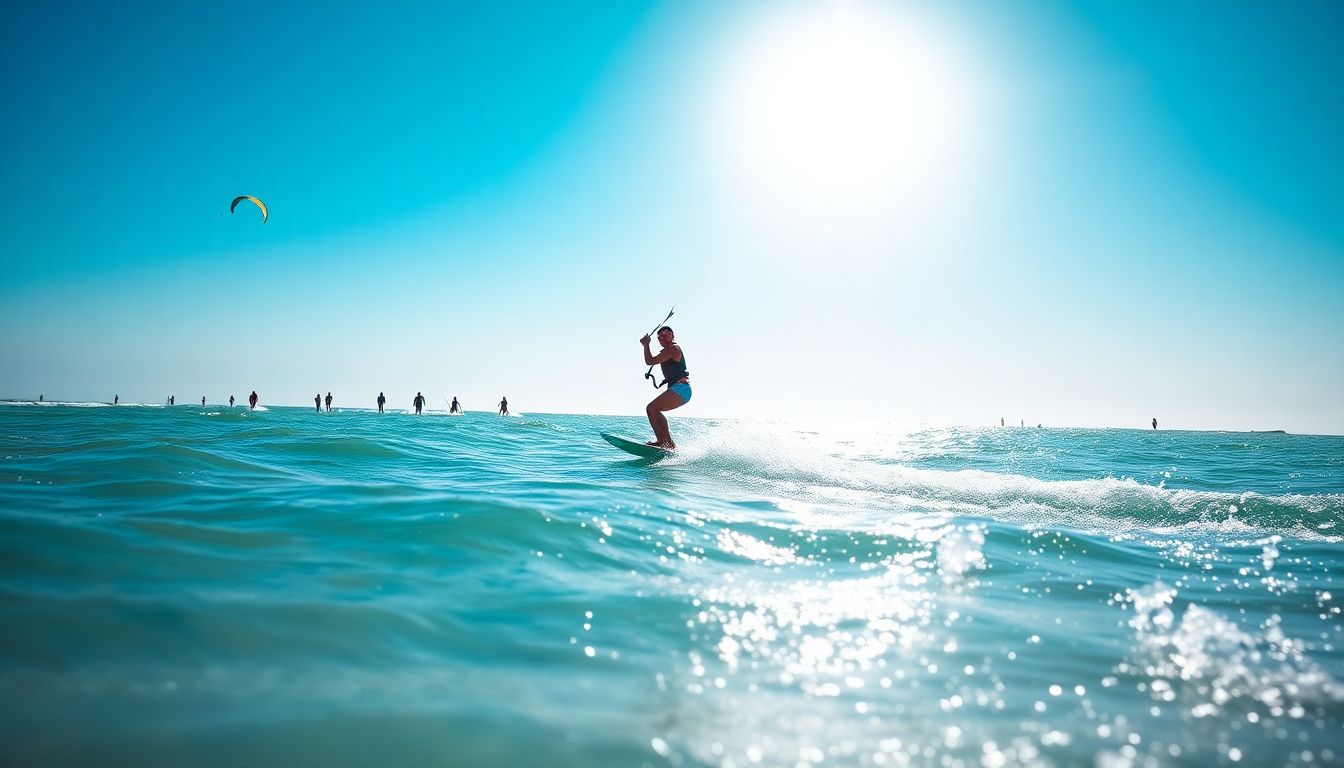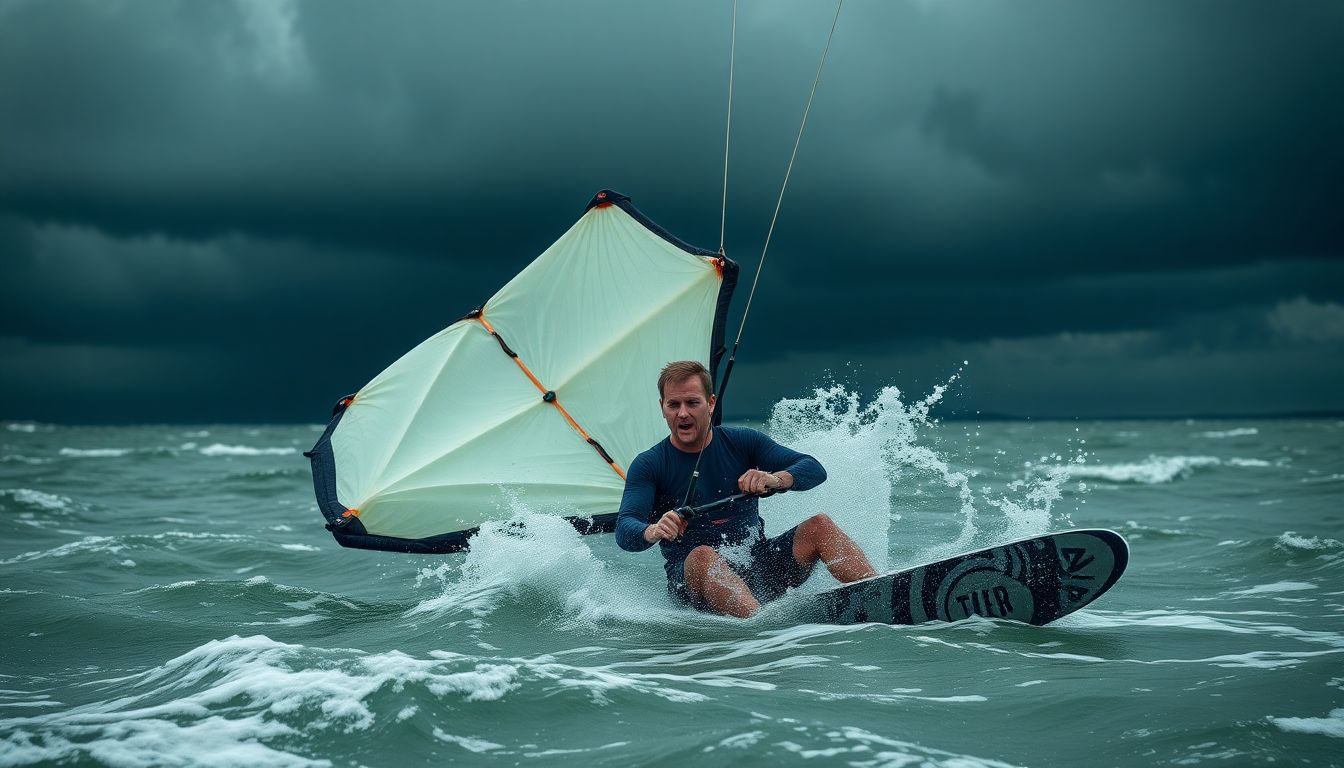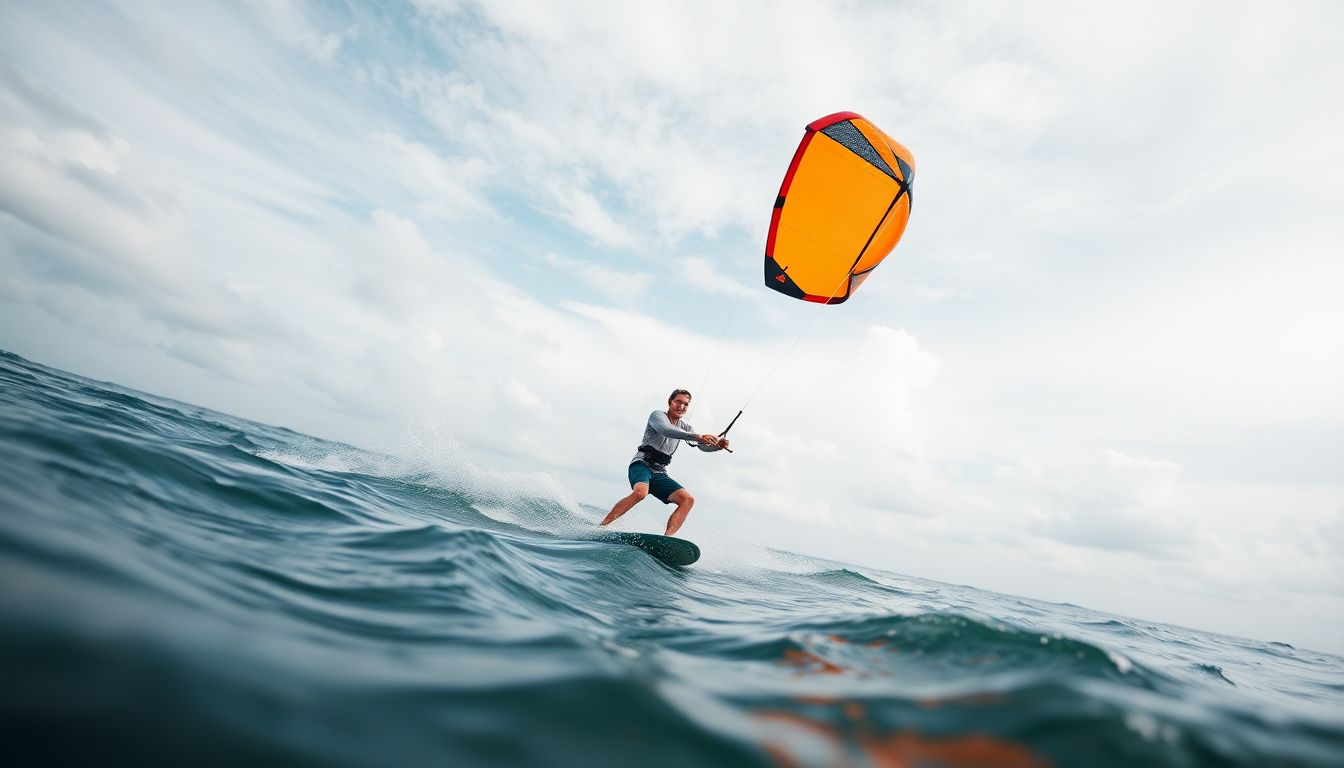Catch the Wind with Confidence
Kitesurfing is an exhilarating sport that attracts thrill-seekers and water lovers alike. With the wind at your back and the waves beneath your feet, it’s a remarkable way to connect with nature. But before you plunge into the waves, choosing the right gear is essential to ensure a safe and enjoyable experience.
Finding the perfect kitesurfing gear can feel overwhelming. With so many options available, how can you be sure you’re picking what’s best for you? This guide will walk you through the basics, making it easier to navigate your choices as a beginner.
[Also see our article: Top Essential Tips for Beginners to Start Kitesurfing Safely].
Understanding Kites: Size, Shape, and Style
Kite Sizes: Matching Your Weight and Wind Conditions
Choosing the right kite size is critical. Different sizes work better under varying wind conditions and for different weights.
Beginner-Friendly Kite Sizes: Recommendations and Considerations
- 8-12m² kites are often recommended for beginners.
- A larger kite helps catch more wind, great for lighter winds.
- Consider your weight: the heavier you are, the larger the kite you may need.
Advanced Rider Considerations
As you progress, you may want to try smaller kites (6-8m²) for stronger winds to improve agility and performance.
Kite Shapes: From Bow to C-Shape
Understanding kite shapes can impact your ride.
Bow Kites: Stability and User-Friendliness
Bow kites are excellent for new riders, offering stability and easy control.
C-Kites: Performance and Maneuverability
C-kites, while trickier to handle, provide great performance for seasoned users looking to push their skills.
Kite Styles: Inflatable vs. Foil Kites
You must also choose between inflatable and foil kites.
Inflatable Kites: Durability and Ease of Use
Inflatable kites are durable and user-friendly, making them suitable for beginners.
Foil Kites: Performance and Packing Size
Foil kites are more compact and efficient in light winds, suitable for advanced riders wanting to travel light.
Choosing the Right Board: Directional vs. Twin Tip
Twin Tip Boards: Versatility for Beginners and All-Around Use
Twin tip boards are popular among beginners for their versatility.
Board Size and Volume: Finding the Right Fit for Your Weight and Skill
- 133-150cm is a common size range for beginners.
- Volume affects buoyancy; choose according to your weight.
Popular Twin Tip Board Brands and Models
Brands like Naish, Cabrinha, and Liquid Force offer great options for newcomers.
Directional Boards: Speed and Performance for Experienced Riders
Directional boards are for those who want speed and performance.
Directional Board Styles: Choosing the Right Shape for Your Riding Style
Find a style that matches your preference, whether it’s for cruising or performing tricks.
Advanced Considerations: Directional vs. Twin-Tip comparisons
Directional boards require more skill but can provide a thrilling ride when mastered.

Harness and Control System Essentials
Harness Types: Waist, Seat, and Hybrid Options
Harness choice affects comfort and control.
Waist Harnesses: Comfort and Freedom of Movement
Waist harnesses allow for more mobility, making them popular among medium to advanced riders.
Seat Harnesses: Support and Power Transfer
Seat harnesses provide added support, making them ideal for beginners.
Control Systems: Safety and Convenience
A safe control setup is essential.
Quick-Release Systems: Prioritizing Rider Safety
Choose a system that ensures quick release in emergencies, keeping safety paramount.
Bar Length and Control Settings: Finding the Right Fit
Length options vary; select one that feels comfortable and provides good control.
Essential Safety Gear: Protecting Yourself on the Water
Safety gear is a non-negotiable part of your kitesurfing setup.
Impact Vest/Life Jacket: Protecting Your Torso and Vital Organs
An impact vest or life jacket offers safety and buoyancy.
Choosing the Right Buoyancy and Fit
Find one that fits snugly without restricting movement.
Impact Vest features: Protecting against impacts
Look for vests with built-in padding for added protection.
Helmet: Protecting Your Head
Always wear a helmet while kitesurfing.
Helmet Styles and Fit
Choose a helmet that is comfortable and fits securely.
Helmet Safety Standards
Ensure your helmet meets safety standards for maximum protection.
Leash: Connecting You to Your Kite
A leash is crucial for maintaining control of your kite, preventing it from drifting away.
Budget and Brands: Making Informed Decisions
Setting a Realistic Budget: Prioritizing Safety and Quality
Being smart about spending ensures you get quality gear.
Determining Cost Ranges for Different Gear Types
Expect to spend between $1,000 to $3,000 for a full setup including kite, board, harness, and safety gear.
Prioritizing Cost: Balancing Budget with Safety
Invest in quality when it comes to safety gear; your safety comes first.
Top Kitesurfing Brands: A Quick Overview
Brands like Slingshot, North, and F-One are known for their reliability.
Researching Brands: Comparing Features and Prices
Take the time to read reviews and compare features to ensure you make informed choices.
Finding the Right Gear for your budget
Look for sales or second-hand gear if you’re on a tighter budget.
Conclusion: Ready to Ride
In summary, choosing the right kitesurfing gear involves assessing your skill level, understanding the different options available, and prioritizing safety. Keeping your budget in mind will allow you to make smart decisions.
Recap of Key Considerations
- Consider kite size, shape, and style based on weight and wind conditions.
- Choose a board that suits your skill level and riding style.
- Don’t neglect safety gear.
Tips for Maintaining Your Gear
Regularly check for wear and tear, rinse your gear after every session, and store it properly.
Finding Local Instructors and Resources
Invest time in finding local kitesurfing schools or instructors to help you learn safely and effectively. They can also guide you in picking the right gear tailored to your needs.
By understanding these fundamentals, you can confidently step into the thrilling world of kitesurfing and enjoy every moment on the water. For more see here.








